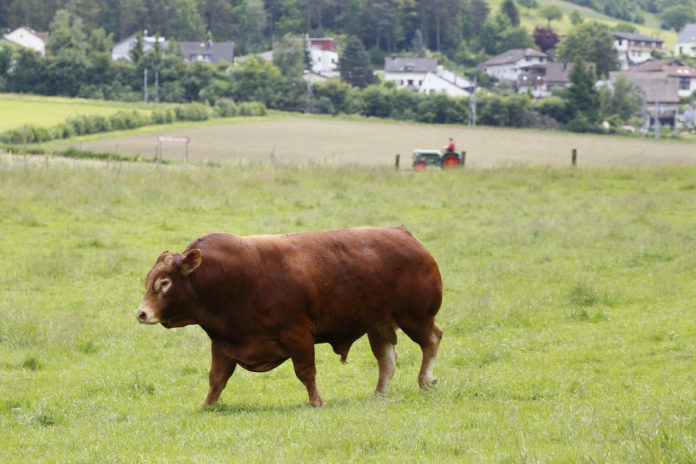A bull Breeding Soundness Evaluation (BSE) is a term that both sellers and buyers have become more familiar with in recent years.
A veterinary practitioner conducts the BSE, which, in brief, examines a bull’s mobility, structural soundness, semen quality, health, and reproductive development (including testicular size).
On farms which retain a stockbull for breeding purposes, the vet should carry out the process on a yearly basis at least 60 days as a pre-breeding season examination before the season commences on a farm.
Breeding Soundness Evaluation
The assessment is effective in the sense that, with correct timing, it can facilitate re-testing and, ultimately, allow for the timely replacement of bulls that may fail the examination.
That is according to Teagasc’s Donegal-based Gary Fisher, who discussed the importance of evaluating bulls for breeding purposes during one of the state agency’s webinars on bull safety and fertility.
Hosted by Teagasc’s Sligo Leitrim Donegal branch, Fisher commented that “a lot of farmers that breed pedigree bulls for sale are are a lot more aware of this particular evaluation than other suckler farmers”.
He explained: “It is a bit time-consuming, and during the height of spring, most vets are very busy [with calving and lambing season].”
“However, it is something that you should consider doing on your farm to ensure that your bull is ready for the breeding season that lies ahead.”
As he previously stated in this news article, “Just because your bull was 100% okay last year does not necessarily mean that he is okay for the coming season,” he urged farmers.
Examination protocol
He pointed to the British Cattle Veterinary Association’s certification protocol for the examination, which covers four key areas as follows to reduce the risk of poor fertility performance in stock bulls:
- Physical examination – Heart, lungs, eyes, mouth, legs, feet, testicles, scrotum;
- Semen analysis – Take a semen sample from a bull and look through a microscope to see the quantity of semen, semen movement;
- Assessment of mating ability (not generally performed in Ireland) – Observing the bull mate a female in heat – something that you, as the farmer, needs to oversee;
- Classification or overall prognosis – Is the bull fit for purpose? Unsatisfactory – Failed to reach a certain threshold. Does not classify as fertile or infertile.
Buying a bull
Fisher continued: “Most bulls entered into society premier sales have to go through a bull breeding soundness evaluation, and if they do not pass it, they are not allowed to enter the society sale.”
“Any farmer that is buying a bull should be requesting that this is carried out before you purchase the bull.”
“There is no point buying the bull, and, in two to three weeks later, you are back to the original owner saying this bull is not working,” he concluded.
Teagasc has produced an illustrated guide on the examination of bulls for breeding soundness, which you can access via this link.
Previous article on That’s Farming on:
‘Do not put a bull in a dark shed on his own where he cannot see anything’





